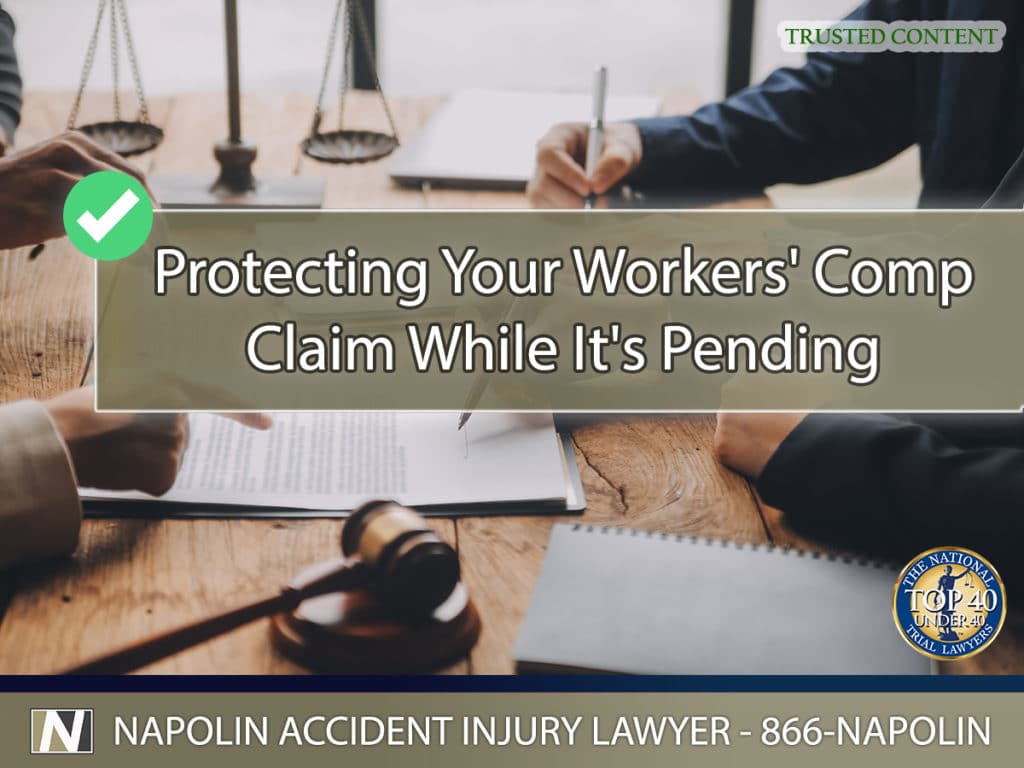In the aftermath of a workplace injury in California, navigating the complexities of the workers' compensation system is a critical step towards securing your rights and benefits. This comprehensive guide is designed to arm you with the knowledge necessary to protect your claim throughout its pending status. It's essential to understand that certain actions can significantly impact the outcome of your claim. By adhering to the guidelines and advice provided here, you can avoid common pitfalls that might jeopardize your ability to receive fair compensation. Our aim is to ensure that injured workers are well-informed and prepared to navigate their claims effectively.
Understanding Workers' Compensation Claims in California
Understanding Workers' Compensation Claims in California
California's workers' compensation system is a no-fault system designed to provide quick and efficient benefits to workers injured on the job. This system covers medical treatment, temporary disability benefits, permanent disability benefits, supplemental job displacement benefits, and death benefits. The intent is to ensure that injured workers receive the necessary medical care and financial support during their recovery period. However, navigating this system can be daunting without a clear understanding of your rights and the processes involved. It's crucial to report your injury promptly, seek appropriate medical care, and file a claim form (DWC-1) with your employer to initiate your workers' compensation claim.
Limiting Physical Activities
The Impact of Excessive Physical Activity
After sustaining a workplace injury, it's paramount to limit your physical activities to those approved by your healthcare provider. Engaging in activities that exceed these recommendations can not only delay your recovery but also give insurance adjusters grounds to question the severity of your injuries. This skepticism can arise from surveillance footage or social media posts showing activities inconsistent with your reported limitations. Therefore, closely adhering to your medical provider's advice is not just crucial for your health but also for the integrity of your claim.
Following Medical Advice
The cornerstone of a strong workers' compensation claim is thorough and consistent medical documentation. Attending all scheduled medical appointments and following through with prescribed treatments and rehabilitation exercises are essential actions. These steps demonstrate your commitment to recovery and provide tangible evidence of the extent of your injuries. Insurance companies closely monitor compliance with medical advice, and any deviation can be misconstrued as an indication that your injuries are not as serious as claimed.
Social Media Caution
The Risks of Oversharing Online During A Workers' Comp Claim
The Risks of Oversharing Online During A Workers' Comp Claim
In today's interconnected world, the urge to share aspects of our lives on social media is strong. However, when you have a pending workers' compensation claim, it's wise to exercise restraint. Posts, pictures, or comments that depict physical activities, travel, or other actions that could be seen as inconsistent with your injury claims can be detrimental. Insurance companies often scrutinize social media profiles for evidence to minimize or deny claims. A simple photo or post can be taken out of context and used against you, undermining the legitimacy of your claim.
Ensuring Medical Compliance
The Importance of Attending Medical Appointments During A Workers' Comp Claim
A critical aspect of your workers' compensation claim is the medical evidence supporting your injury and the impact it has on your ability to work. Regular attendance at medical appointments and adherence to treatment plans are non-negotiable. These actions not only facilitate your recovery but also create a documented trail of your injury's seriousness and your dedication to getting better. Missed appointments or refusal of recommended treatments can be interpreted by insurance companies as evidence that your injury is not as disabling as you claim, potentially leading to a reduction or denial of benefits.
Avoiding Secondary Employment
The Consequences of Taking Another Job
While your workers' compensation claim is pending, seeking or engaging in secondary employment can significantly impact your case. If you're receiving temporary disability benefits, working another job may suggest to the insurance company that you're capable of working and thus not entitled to those benefits. This perception can lead to a reassessment of your claim and possibly a decrease or cessation of benefits. It's essential to communicate openly with your attorney about any work activity during your claim to ensure that you're not inadvertently jeopardizing your benefits.
The Role of Legal Assistance in Workers' Compensation Claims
The complexity of the workers' compensation system in California often necessitates professional legal assistance. An experienced attorney can provide invaluable guidance through the claim process, ensuring that your rights are protected and that you receive the full benefits you're entitled to. Legal representation is particularly crucial when disputes arise, such as disagreements over the extent of your injuries, the denial of certain treatments, or challenges to your claim's validity. With a knowledgeable attorney advocating on your behalf, you can navigate these challenges more effectively and secure a favorable outcome for your claim.
Protecting Your Ontario, California Workers' Comp Claim While It's Pending
Protecting Your Ontario, California Workers' Comp Claim While It's Pending
Protecting your workers' compensation claim in California requires a careful and informed approach. By understanding your rights, limiting physical activities, exercising caution on social media, ensuring medical compliance, and avoiding secondary employment, you can safeguard your claim and support a successful recovery. Remember, the guidance of an experienced attorney can be a decisive factor in the success of your claim. If you're navigating the complexities of a workers' compensation claim, don't hesitate to seek professional legal assistance. Contact Napolin Accident Injury Lawyer at (909) 962-8415 for a free consultation and ensure that your rights are fully protected throughout the claim process.

